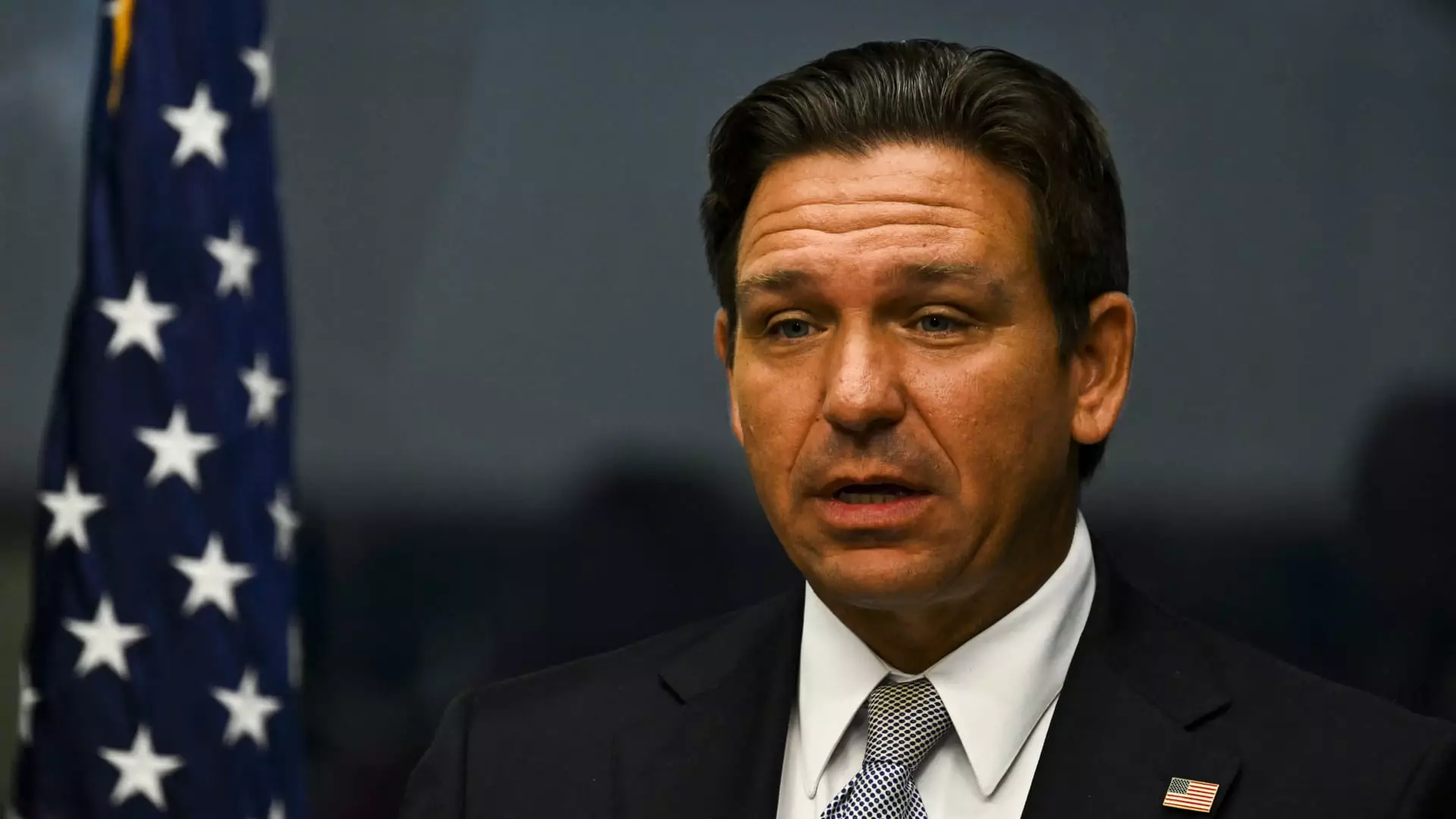In the aftermath of Hurricane Helene’s devastating impacts on Florida, the political maneuvering surrounding disaster recovery became as notable as the storm itself. Governor Ron DeSantis is reportedly avoiding communication with Vice President Kamala Harris concerning relief efforts. According to sources, DeSantis perceives Harris’s outreach as politically motivated, choosing instead to communicate through other channels, notably with Federal Emergency Management Agency (FEMA) officials. This development underscores the ongoing polarization within American politics, particularly concerning disaster management and emergency response.
While it is not uncommon for political figures to treat communications cautiously, particularly during high-stakes situations like disaster recovery, the events following Hurricane Helene raise critical questions. The decisions by DeSantis, a Republican, to snub calls from the Democratic Vice President might seem expedient from a party loyalty standpoint, but they may hinder effective collaboration necessary for a swift and robust response to humanitarian needs. The well-being of those affected by disruptions often relies more on collaboration than political allegiance, something that state leaders should remember in times of crisis.
The ongoing tension between DeSantis and the Biden administration reflects a broader trend observed in U.S. governance — where political disagreements can overshadow the number one priority: public safety. After Hurricane Helene made landfall, destroying parts of rural north Florida and causing extensive flooding in metropolitan areas such as Tampa, it became paramount for leaders to coordinate efforts. However, DeSantis has seemingly asserted that Florida’s recovery is solely the state’s responsibility. In a statement, he remarked, “We have it handled,” directing the federal government’s attention to other regions, particularly North Carolina.
This dismissive stance towards federal aid places a spotlight on the critical nature of intergovernmental relations during emergencies. Although Florida leaders, including DeSantis, have been praised for their proactive steps to assist neighboring states, such as dispatching National Guard members to North Carolina, the lack of a collaborative approach with federal officials risks leaving essential resources untapped. As exemplified by Georgia’s Governor Brian Kemp, who expressed gratitude for federal assistance, other states recognize the importance of fostering relationships across party lines in disaster situations.
Moreover, the avoidance of direct communication with Harris mirrors a pervasive problem in governmental operations: the inadequacy of effective communication strategies. As hurricanes become increasingly common due to climate change, the necessity for robust disaster response protocols must be prioritized. Collaborative communication fosters an environment where information flows freely among local, state, and federal agencies, allowing for more efficient mobilization of resources.
In contrast, DeSantis’s refusal to engage in dialogue with Harris illustrates how matters of principle or perception can overshadow pragmatic needs. By focusing solely on the political implications, officials risk endangering the very constituents they are meant to serve. Reliable communication channels can expedite recovery times, helping communities recover from disasters faster.
As Hurricane Milton looms on the horizon, another powerful storm threatening Florida’s fragile ecosystem, one cannot help but wonder how the existing political rift will impact the upcoming recovery efforts. No overt outreach from Biden to DeSantis regarding the new threat signals potential unresolved tensions, possibly leaving residents vulnerable if vital collaboration is hindered.
The whirlwind of politics swirling around disaster recovery serves as a stark reminder of the landscape in which current leaders operate. The involvement of former President Donald Trump on this stage, often veering into the realm of misinformation, further complicates the narrative. His public statements regarding the storm, laden with political undertones, derail constructive discourse and risk they overshadow the genuine needs of communities grappling with the aftermath of natural disasters.
Amid the initial assessments and political squabbles, the number of lives affected by Hurricane Helene remains critical. Effective disaster recovery necessitates collaborative efforts driven by a shared commitment to community welfare. As Florida braces for the next storm, the stakes could not be higher. Leaders across the political spectrum must find common ground, prioritizing constructive dialogue over party loyalty, thereby ensuring their constituents are the primary focus in the chaotic aftermath of disasters. Only through unity and collaboration can they hope to weather the storm — both literally and metaphorically.


Leave a Reply